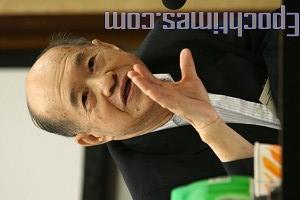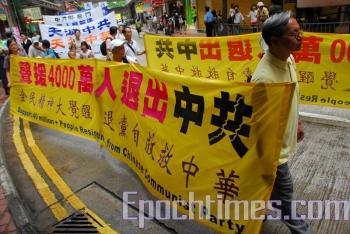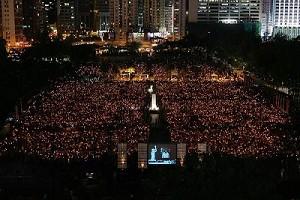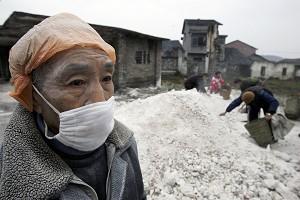HONG KONG—On June 10, 2007, former British Prime Minister Margaret Thatcher spoke publicly for the first time concerning her views about Hong Kong’s return to China and suggested that the idea of “one country, two systems” was inappropriate.
Researcher Ong Yew-kim from the Institute of Asia-Pacific Studies of the Chinese University of Hong Kong, who specializes in Chinese law, pointed out that Ms. Thatcher was speaking her mind and presented his claim that Hong Kong’s dislike of the Chinese Communist Party (CCP) and unwillingness to accept the idea of “one country, one system” was what triggered “one country, two systems.”
As the 10th anniversary of Hong Kong’s return to Chinese sovereignty approaches, the now 81-year-old Thatcher expressed her regret and disappointment in failing to persuade the deceased CCP leader Deng Xiaoping to extend Britain’s lease on Hong Kong. She expressed this during an interview with Hong Kong businessman David Tang. She also claimed that the implementation of the idea of “one country, two systems” is inappropriate amidst the current context.
Mr. Ong pointed out that Ms. Thatcher has the responsibility to declare her standing on this issue. He said, “She is British, and she hosted the Hong Kong negotiation. It was through that negotiation she handed Hong Kong back to China. In her mind, she believes it to be a setback and a failure. She is doubtful regarding the ”one country, two systems“ idea and feels it to be unsatisfactory. I think British people have the right and obligation to say so.”
Ong was once invited to be a draft committee member for the Basic Law of the Hong Kong Special Administrative Region of the People’s Republic of China (Basic Law), but he withdrew later as he was criticized of being politically sensitive.
He said that the majority of the Hong Kong people were refugees who had escaped from mainland China in 1949. They did not want to be ruled by the CCP. It is not hard to see why they dislike the CCP. In the early 80’s, when the handover of Hong Kong was first mentioned, Hong Kong people generally resisted it, because “after 30 years, communist ruling hadn’t become better but had worsened.”
Ong pointed out that before 1997, many Hong Kong people left Hong Kong, because they did not want to be taken over by the CCP. “Many people were fearful at the time of the handover. If the CCP comes and takes back Hong Kong, will Hong Kong suffer the same suppression like Beijing and Shanghai? So they did not approve of the CCP then, and preferred not to return Hong Kong to China.”
Regarding the CCP’s frequent criticism of Hong Kong people being unpatriotic, Mr. Ong stressed that Hong Kong people love their country. It is the CCP they do not like.




Friends Read Free